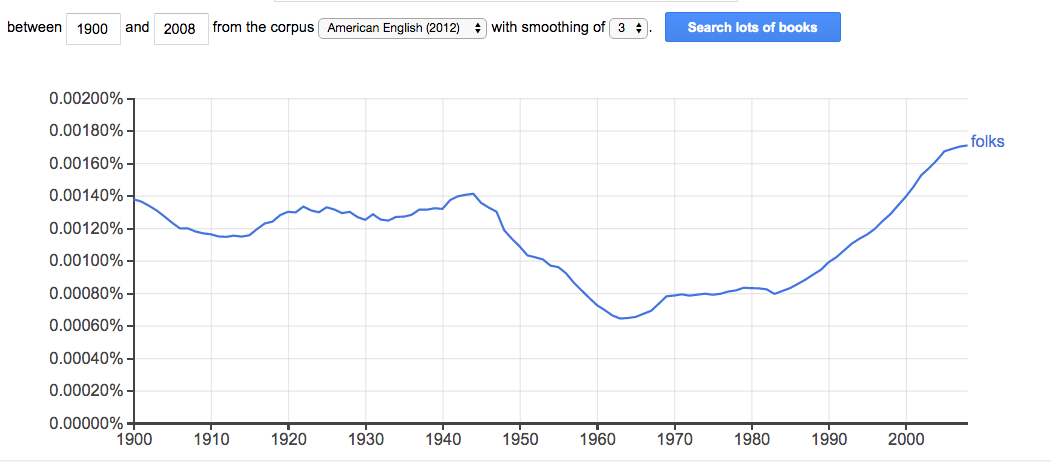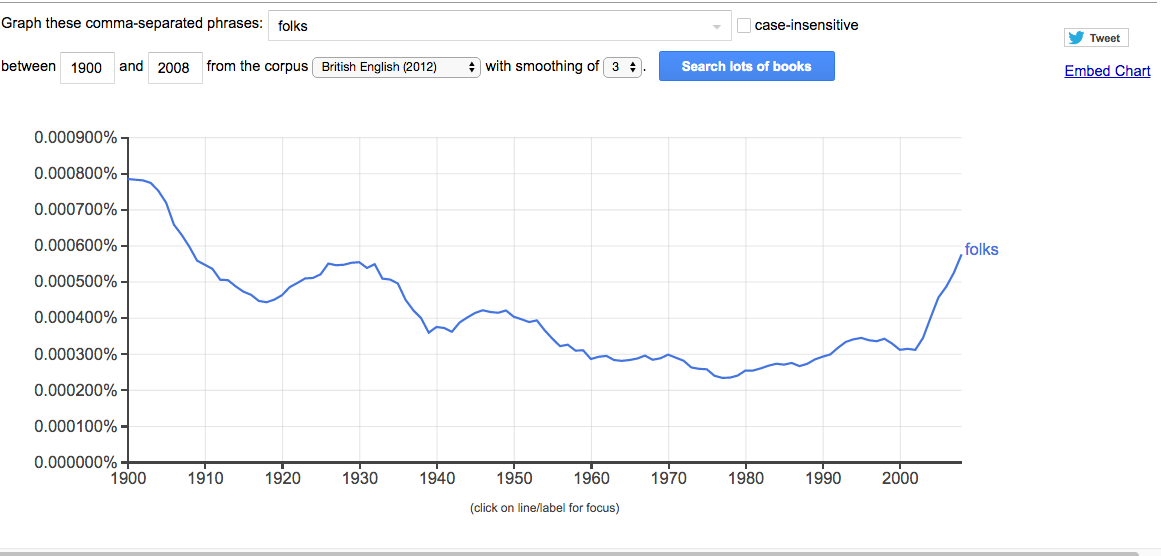Lately, I've been noticing a lot of people using folks (sometimes spelled folx) instead of people. This seems especially prevalent among left-leaning sources that pride themselves on inclusion.
Some examples:
- "What Cis Folk Have In Common With Trans Folk" (an article from everydayfeminism.com)
- "‘Hidden Meaning’ In Paul McCartney’s Hit Holiday Song Is Freaking Folks Out" (an article from huffpost.com)
- "Her braids stood in defiance to a society that actively singles out, disciplines, and asks Black folks to cut their hair... (an article from slate.com)
This newly widespread usage of folks seems unusual given that the word until recently was seen in a fairly negative light. Both President Obama and President Bush were criticized for using it in speeches on serious topics, and it was typically dismissed as too informal or colloquial. I feel like it also was associated more with Southern redneck stereotypes (much like ain't and y'all) rather than being "mainstream."
One reason I've seen for the usage of folks is to replace guys as a gender-neutral term for a group of people. An Atlantic article, "The Problem with 'Hey Guys'", describes people consciously choosing to replace guys with the gender-neutral folks (it also mentions y'all), and says that folks is preferable to people because people is "too often pushy and impersonal."
However, this is just in the context of using it as a second-person plural pronoun. I can see how addressing a group as "you people" would be frowned upon, given the negative implications of that term, but many of the recent uses of folks do not use it as a form of address, but rather as a third-person replacement of "people." (All three of the examples I cited above use it this way.) In these instances, is there any different connotation in using folks instead of people?
Has folks gained a connotation that makes it a more inclusive gender-neutral term for people than people?


